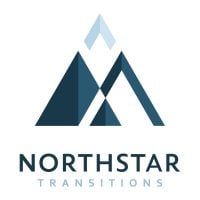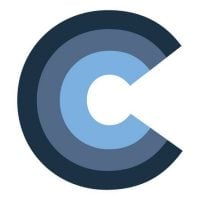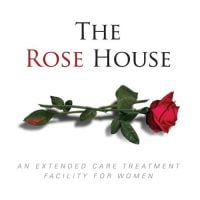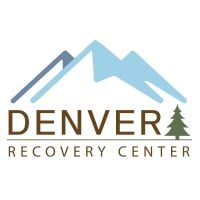Mental Health Center of Boulder County - Maslin Recovery Team
Drug Rehab Center in Boulder, Colorado
The Maslin Recovery Team at the Mental Health Center of Boulder County offers a variety of mental health services and programs tailored to meet the needs of clients struggling with addiction, substance abuse, and other mental health issues, including individual and family therapy, group support, and recovery management services, with a unique Partial Hospitalization Program available for those in need of a higher level of care.
About
Mental Health Center of Boulder County - Maslin Recovery Team in Boulder, Colorado is one of the leading providers of mental health services in the area. Maslin Recovery Team offers a variety of programs and services to support individuals struggling with addiction, substance abuse, and other mental health issues. They provide a safe and supportive environment, with programs tailored to meet the needs of each individual. The team includes multidisciplinary professionals, including psychiatrists and psychologists, social workers, and addiction counselors dedicated to supporting their clients in their recovery journey.
Maslin Recovery Team provides an array of services to help their clients manage addiction and substance use, including individual therapy, family therapy, group support, and recovery management services. Clients also have access to resources such as housing and jobs search support, spiritual healing, relapse prevention, and crisis intervention. The team works with clients to ensure they have access to the right level of care and to develop a customized treatment plan that fits their needs and lifestyle.
Mental Health Center of Boulder County is accredited by The Joint Commission and is licensed by the Colorado Department of Human Services. They have also received numerous awards and recognitions from the Substance Abuse and Mental Health Services Administration and the National Association of Addiction Treatment Providers for their commitment to providing high-quality care and services for those in need. Additionally, Maslin Recovery Team has a unique treatment option of a Partial Hospitalization Program, an intensive five-day outpatient program for those in need of a higher level of care.
Genders
Ages
Modality
Additional
Conditions and Issues Treated
A person who struggles with addiction and a mental health condition suffers from a dual diagnosis. This means that they have two issues that must be treated. The specific mental health issues that the patient at Mental Health Center of Boulder County - Maslin Recovery Team might have include but are not limited to:
- Depression
- Bipolar Disorder
- Anxiety
- PTSD (Post Traumatic Stress Disorder)
The specific addiction issues that the patient might have include but are not limited to:
- Alcoholism
- Drug Addiction (i.e., Cocaine, Meth, and other stimulants, Marijuana, and Ecstasy)
The combination of the two illnesses can be tough to treat. Taking care of one or the other is tough, and taking care of both cannot be done alone. A patient who receives dual diagnosis treatment will be given the best chance at becoming sober.
Levels of Care Offered
This center offers a variety of custom treatment tailored to individual recovery. Currently available are Dual-Diagnosis, Outpatient, with additional therapies available as listed below.
An outpatient treatment program is set up to help with alcohol or drug addiction or a co-occurring disorder. The treatment must attend the treatment facility for their therapy and other programs but return home each night. The frequency of mandatory attendance decreases after much of the treatment program is complete. The treatment programs are monitored by the treatment facility and case managers who work for a judge or judge’s office. A treatment program may be performed out of a treatment facility, treatment clinic, or treatment center.
The benefits of outpatient treatment programs are many. One of the most beneficial treatment programs is that it allows treatment for clients who cannot afford or may not be able to attend treatment at a treatment facility, treatment center, or treatment clinic full-time. Another benefit of treatment programs is that they reduce crime rates because treatment allows people to treat their addiction.
Therapies & Programs
Individualized Treatment is essential because it gives addicts the ability to participate in a program that meets their unique needs. An addict should work with professionals who understand what they’re going through, especially if the addict is actively using. Finding the right treatment program for an addict is difficult, but it’s even harder without communicating with those who have experience treating your specific situation.
Group therapy sessions provide recovering addicts with a chance to cope with everyday situations that many face. Group therapy sessions are held in rehab facilities, clinics, churches or community centers that offer drug addiction treatment.
People who attend these groups are encouraged to voice their feelings and support other addicts in recovery. This helps group members strengthen their own recovery program while cheering on others who are struggling with sobriety.
Trauma therapy allows them to work through past trauma to have peace of mind and begin down the road of sobriety. The therapist will work with the individual to help them understand their past and present relationships. Patients may often believe that something is inherently wrong with them or they are unworthy of love. The therapist aims to correct these negative feelings and behaviors by helping the person realize that their actions do not reflect who they truly are.
Cognitive Behavioral Therapy (CBT) is a highly effective treatment option based on the idea that how we feel, think and act all interact together. Our thoughts determine our feelings and behaviors; our feelings affect our thoughts, and our behaviors change our thoughts and feelings. CBT helps people explore their thoughts for problems (or false beliefs) that influence their mood and actions. By examining their thoughts and beliefs, people can recognize distorted or irrational and modify them to more realistic, positive ones. CBT is very goal-oriented, which means that the therapist and patient work together on a specific problem while learning to become more adept at solving future problems.
CBT works well with a broad range of people, including those with depression, anxiety disorders, eating disorders, and problems with anger. In addition to helping a client focus on thoughts that can be changed, CBT also allows them to take an active role in their treatment. This is called a collaborative approach because both patient and therapist work together to produce the best possible results.
CBT is based on cognitive learning theory, which says that our behavior is a learned response to our environment. Cognitive refers to thoughts and beliefs, while behavioral relates to actions or deeds. CBT helps people learn ways of behaving to improve their quality of life by focusing on specific problems or goals they want to achieve. Sometimes, CBT is used alone; other times, it is combined with medications or brief counseling techniques such as solution-focused and motivational interviewing to achieve optimal results for the patient.
Patient Experience
Experiential Therapy at Mental Health Center of Boulder County - Maslin Recovery Team
Drug addicts can benefit from experiential therapy, which involves real-time activities to process trauma and emotions. This type of therapy is available at Mental Health Center of Boulder County - Maslin Recovery Team and can help reduce the need to resort to drugs and alcohol. Activities may include role-playing, use of props, and others. The individual learns to release suppressed thoughts that lead to negative feelings and embrace the present moment. Experiential therapy is beneficial in treating various disorders, including drug addiction, eating, and behavioral disorders.
Payment Options Accepted
For specific insurance or payment methods please contact us.
Is your insurance accepted?
Ask an expert, call (888) 674-0062
Mental Health Center of Boulder County Associated Centers
Discover treatment facilities under the same provider.
- Mental Health Center of Boulder - Warner House in Boulder, CO
- Mental Health Partners in Broomfield, CO
- Mental Health Center of Boulder County - Longmont in Longmont, CO
- Mental Health Center of Boulder County - Bucknell Court in Boulder, CO
Learn More About Mental Health Center of Boulder County Centers
Additional Details
Specifics, location, and helpful extra information.
Boulder, Colorado 80302 Phone Number(303) 443-6154 Meta DetailsUpdated November 25, 2023
Staff Verified
Patient Reviews
There are no reviews yet. Be the first one to write one.
Boulder, Colorado Addiction Information
The Centennial State has slipped to a ranking of 12th in the country for drug abuse. Each year around 24% of the state's population uses illegal drugs while nearly 5% of its population abuses alcohol. Substance-related deaths in Colorado were responsible for 15.12% between 2008 and 2017. Fortunately, Colorado drug and alcohol addiction treatment are available to help a person overcome addiction.
The drug addiction problem in Boulder, CO, is unfortunately quite severe. According to recent statistics, over 11,000 people in the city are addicted to drugs or alcohol. In Boulder County, opioids were involved in more than 60 percent of overdose deaths between 2009 and 2016. Boulder, CO, offers a variety of drug treatment options to meet the needs of all individuals struggling with addiction.
Treatment in Nearby Cities
- Louisville, CO (8.1 mi.)
- Black Hawk, CO (18.6 mi.)
- Aurora, CO (30.7 mi.)
- Centennial, CO (36.6 mi.)
- Fort Lupton, CO (25.2 mi.)
Centers near Mental Health Center of Boulder County - Maslin Recovery Team
The facility name, logo and brand are the property and registered trademarks of Mental Health Center of Boulder County - Maslin Recovery Team, and are being used for identification and informational purposes only. Use of these names, logos and brands shall not imply endorsement. RehabNow.org is not affiliated with or sponsored by Mental Health Center of Boulder County - Maslin Recovery Team.









